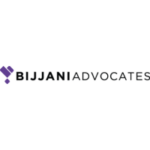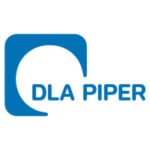-
What are the typical ownership structures for project companies in your jurisdiction? Does this vary based on the industry sector?
There are two typical corporate structures used for project finance endeavours in the Dominican Republic to mitigate any potential risks arising from the execution of the project and/or any potential event of default. DR law does not require that the project SPV be organized under the laws of our jurisdiction. On certain regulated sectors, such as telecommunications, the project SPV needs to be organized under DR law.
First, a limited liability company (sociedad de responsabilidad limitada or S.R.L., per its acronym in Spanish) incorporated as a project SPV to act as a second layer from the parent company and later on, depending on the scope of the project to be developed, to add a third layer of another limited liability company is added to the corporate structure, depending on the scope of the project.
Second, a simplified anonymous corporation (sociedad anónima simplificada or S.A.S., per its acronym in Spanish) is also incorporated as a project SPV, depending on the scope of the project and the capital structure of the sponsors. Project finance companies seek the latter as a layer between the parent company and the project SPV to secure financing and large-scale complex financing not only from financial entities, but also from the investors.
Limited liability companies issue social quotas on behalf of its members, while simplified anonymous corporations issue freely negotiable shares.
-
Are there are any corporate governance laws or accounting practices that foreign investors in a project company should be aware of?
Generally, there is no governance laws or accounting practices specially or narrowly tailored for project finance foreign investors. DR law in force regarding corporations provide minimum clauses for the articles of incorporation or company bylaws. Furthermore best practices, as a matter of soft law, are permitted, if it does not run afoul of Law 479-08 (and its amendments) regarding corporate governance mechanisms.
-
If applicable, what forms of credit support from sponsors or host governments are typically provided?
In the DR, from the private financial sector, project finance endeavors may seek credit from financial entities such as banks or credit corporations, whether syndicated or not, both of local and foreign origin; usually these financial loans are destined to high scale projects. For low scale projects, usually sponsors provide equity and request small loans from local banks to finance the development of the project, as local banks usually prefer to participate as part of a lending syndicate.
Lenders are typically commercial banks, equity funds, foreign banks, multilateral entities [such as the World Bank, IFC, IDB, BEI, among others] and export credit agencies located on the project site’s jurisdiction.
From a public sector perspective, DR law depending on the nature of the project, may grant tax credits or tax exemptions to conduct high scale project finance. This is conditioned to the type of project the investors are moving to develop: for tourism, there are regulations on the matter; for renewable energy, there is a different regulation; for free trade zones, there is a different tax normative, et al.
The sponsors are usually companies related to the debtor and/or linked to the development of the project (either directly or through a subsidiary or holding company) and on public/state-owned projects, the Dominican State and its institutions may appear as sponsor.
Sponsors may adopt one of the typical corporate structures for project finance endeavors in the DR, to mitigate potential risks arising from the execution of such project and/or to limit any potential claims arising from an event of default. Usually, lenders perform a comprehensive due diligence process regarding the debtor’s and the sponsors’ risk profile as well as the project documentation and the validity of the permits and licenses required under DR law to develop the project.
-
What types of security interests are available (and suitable) for a project financing in your jurisdiction?
Lenders can obtain security to cover the principal, interest and other amounts owed under the loan agreement, in the event of default or early termination. DR law does not have any restrictions on what can be granted as a security to finance private or public projects, namely:
- A mortgage on the real estate property on which the project will be developed.
- A pledge on the social quotas and/or shares that both the investors and the sponsors own in the capital of the project SPV.
- An assignment for creditor regarding all relevant agreements related to the development of the project, as well as all permits, licenses, authorizations, non-objections, certifications, concessions and contracts related to the development, operation and maintenance of the project, as well as the plans and designs for its construction and commissioning. In some cases an assignment of an agreement (for example, in telecommunications) could require notification to the competent governmental authority (and in some cases, to obtain its prior consent, authorization or non-objection).
- A pledge on all assets and personal property acquired by the project SPV for the development of the project, as well as a non-possessional security interest on all movable property that will be housed in the project property and on all movable property, machinery and equipment of the project.
- A pledge of intangible assets (such as patents, trademarks, copyrights, and proprietary designs).
- Notarial promissory notes, warrantied by all present and future properties owned by the debtor and the project SPV.
- An assignment for creditor regarding all insurance policies contracted by the debtor for the project, such as the insurance policies for all construction risks (TCR), fire, natural catastrophes, allied lines, terrorism, cyber risks; civil liability; business continuity insurance (loss of profits), equipment and machinery damage.
- An assignment for creditor regarding all bank account funds dedicated by the project SPV to the project, and/or generated by the operation of the project, as well as all rights held by the debtor over the reserve account established for the service of the debt.
-
How are the above security interests perfected?
The security interests are perfected by performing its registration before the competent authorities or by recording said constituting document before the SEGM/Mercantile Registry or before the Title Deed Registry at the Real Estate Jurisdiction, or before certain courts, as applicable. The procedure to be followed for the registration of a security interest before the Electronic System of Movable Guarantees (SEGM), is detailed in Law 45-20 and its Implementing Regulations (Decree 18-23). According to the provisions of Article 69 et seq of Law 45-20, the priority of a security interest is determined by the time of its publicity. The publicity and priority of non-possessory pledges, pledges that must be specifically registered as indicated by Law 45-20 and pledges arising by virtue of administrative or judicial resolutions are determined by the date of registration in the SEGM.
Lenders shall ensure that their collateral is properly recorded under DR law for it to be enforceable in the event of default by debtor or early termination of the loan agreement. The priority enjoyed by a secured creditor under a security interest gives it the priority right to pursue the assets pledged as security and their attributable or derivative assets, when the security interest affects them, over any other creditor and over liens created after its publicity. With respect to the assignment for creditor, these are perfected by executing the proper notifications between the parties involved in the operation.
Notarial promissory notes are recorded before a public notary competent to act in the respective jurisdiction.
Other formalities imply that the security in question is enforceable against a third party. For instance, a pledge of an agreement would require notification to the competent governmental authority (and in some cases, to obtain its prior consent). It is common practice for the lenders to execute a direct agreement with the public institution, to secure the enforceability of step-in rights (allowing the lender to cure any default by the debtor, to foreclose on the collateral and to assume its ownership after foreclosure without the need for further approvals, among others), the issuance of notices to the lenders regarding the development of the project, among other things.
Sometimes, security interests (e.g. shares of the project SPV) are subject to other formalities such as the approval of the general assembly of the members of the project SPV and the competent instance of the members themselves. Also, certain securities (e.g. mortgage or pledge) are subject to payment of certain fees before the competent authorities.
-
Please identify how security is enforced (notably the enforcement options available for secured parties) both pre and post insolvency/bankruptcy of the project company?
The enforcement of collaterals under DR law is not self-executory, as foreclosure procedures shall follow court procedure. Depending on the security, it can be enforced in accordance with DR law in force. No specific execution order is determined by DR law, so the creditor can determine which of the recorded securities it intends to enforce. Enforcement of pledge or foreclosure of a real estate also forced transfers of pledged social quotas or shares, as well as licenses and permits granted to debtor.
However, because of Law 141-15, any enforcement of a security in favor or creditor is halted until the insolvency/bankruptcy proceeding is concluded. Creditors will charge for their credit in accordance with the rank and nature of the security in place. The purpose of Law 141-15 is to protect creditors in the face of the financial difficulty of their debtors to comply with their economic obligations, and to achieve the operational continuity of individuals and legal entities through the restructuring or judicial liquidation processes. When restructuring is impossible or unfeasible, the liquidation of the company’s assets will proceed.
Except for the privileges set forth by DR law in favor of the employees of the project SPV (regarding their accrued salaries and severance benefits), the tax administration (regarding due and unpaid taxes), spouses (over their husbands’ assets), and attorneys (regarding legal fees), a first rank security interest duly recorded under DR law, secures the creditor its rank until the security is foreclosed or released.
The payment of claims in the judicial liquidation must be made in accordance with the legislation in force. In the case of privileged and secured creditors, after the sale of the real estate, they will be distributed in proportion to their claims.
The guarantees granted by the debtor in favor of the lender, as security for the payment of the obligations under the loan agreement, may be enforced by the lender in whole or in part, jointly or separately, in the order that the lender deems most convenient to its interests, without obligation to enforce one type or kind of guarantee or privilege with priority over the others. In the event of default, the secured creditor has preference for possession, dispossession, enforcement and payment with the collateral.
On syndicated loans, there is no prohibition under DR law on the possibility that the enforcement is taken directly by a security agent acting on behalf of the other lenders.
-
What are other important considerations in relation to the security regime in the jurisdiction that secured parties should be aware of?
If a creditor moves to secure its credit by a mortgage, the foreclose proceedings are highly formalistic. The lender cannot take ownership of the collateral in satisfaction of the pending debt, without first undergoing the foreclosure procedure, as it is prohibited by DR law, and settled law by the Supreme Court. Also, debtor cannot free himself from debt by granting creditor of the estate as payment without previously formally waiving the mortgage, which is an accord that is prohibited: foreclosure is a public policy disposition. Regarding personal property, granting them to creditor as payment of a defaulted credit is allowed.
Registration of multiple liens is not permitted on certain assets, such as social quotas/shares and moveable assets. Real estate property allows registration of a second or third rank mortgage, if the property value allows it.
The steps to foreclose a collateral vary depending on the type of asset, but in general, the procedure requires creditor to notice debtor of the existence of an event of default, and to go through a public sale process.
In the event of default of the debtor, in a process of enforcement of movable collateral, the lender may:
(i) adjudicate in payment the rights assigned in collateral.
(ii) execute the pledge or collateral without possession following the procedure of execution by auction, direct sale or adjudication in payment without judicial intervention, in accordance with the terms of article 92 and following of Law 45-20.
(iii) waive, if it deems it convenient, the procedure of execution by auction, direct sale or adjudication in payment without judicial intervention in accordance with Law 45-20, being able to choose the most convenient procedure.
-
What key project risks should lenders be aware of in project financings in your jurisdiction? This may include, but may not be limited to, the following risks: force majeure, political risk, currency convertibility risk, regulating or permitting risk, construction/completion risk, supply or feed stock risk or legal and regulatory risk).
In general, in the DR lenders do not face relevant risks on the matters previously addressed.
-
Are any governmental / regulatory consents required and are any financing or project documents requirement to be filed with any authority in order to be admissible in evidence in a court of law, valid or enforceable?
Notwithstanding the broadness of this question, licenses or concessions cannot be directly granted or assigned to lender unless prior authorization is issued by the competent regulatory entities, depending on the sector. If debtor is enjoying tax exemptions under a certain provision of DR law (e.g. tourism and renewable energies), such tax exemptions shall be considered as a part of the securities granted in creditor´s favor and in the case of forced execution, lender should be allowed to dispose of them for the benefit of the project. Also, in a narrow scope of cases, if there is a concession agreement with the Government and such agreement provides tax breaks or exemptions, by constitutional disposition, Congress must approve the agreement.
-
Are there are any specific foreign exchange, royalties, export restrictions, subsidies, foreign investment, that are relevant for project financings (particularly in the natural resources sectors)?
In general, in the DR lender do not face relevant risks on the matters previously addressed. Natural resources belong to the Dominican state. Unless otherwise specified by existing legislation (e.g., protected areas), state-owned lands may be subject to usufruct, exploitation, concession, and licensing in favor of a third party, subject to the provisions of the proper documentation and completion of any permitting requirements.
-
Please set out any specific environmental, social and governance issues that are relevant. For example, are project companies subject to certain ESG laws, reporting requirements or regulations?
Foreign companies must comply with the requirements set forth under the law of its country of incorporation/registration and its respective Bylaws/corporate documents. In principle, foreign companies who function as lender and do not have operations in the DR, do not have a legal obligation to report/register documentation before the competent Chamber of Commerce and Production (Mercantile Registry), the DGII, nor any other public institution.
Notwithstanding the existence of an Investment Treaty, Foreign investment Law 16-95, established the principle that both foreign and national investors shall be recognized the same rights and duties and receive an equal treatment as compared to local investments. By registering a foreign investment in the DR, the following benefits are received:
- Free convertibility of funds and free access to international currency through local banks and the Central Bank of the Dominican Republic;
- The right to repatriate abroad the total amount of the invested capital and the dividends declared during each fiscal year;
- The right to repatriate the obligations resulting from technological services contracts where fees, royalties and similar obligations are established;
- Benefit from a special and expeditious process of residency in the country.
An important aspect to highlight is the fact that, as the DR is a signatory to DR-CAFTA, investors from any country party to the agreement enjoy additional protections to those granted by Dominican law, namely:
- Non-discriminatory treatment in relation to national investors and investors from countries that are not parties to the agreement;
- Free transfer of funds related to an investment free of charge;
- Protection against expropriation in breach of the rules of customary international law;
- A “minimum standard of treatment” in accordance with customary international law;
- The ability to hire key management personnel regardless of their nationality;
- A procedure for dispute resolution between the Investor and the State; o A “minimum standard of treatment” in accordance with customary international law.
-
Has any public-private partnership models or laws been enacted in the jurisdiction, and if so, are they specific to certain industry sectors?
Yes. Law 1-12 on the DR National Development Strategy, article 2, fosters synergy between public and private actions to achieve the country’s vision for 2030. On that matter, Law 47-20 regulates the public-private alliances (PPPs) in the Dominican Republic. Although said legislation is not closely restricted to certain type of projects, it is quite adjusted to project finance for high scale projects.
Its purpose is to establish a regulatory framework to govern the initiation, selection, award, contracting, execution, follow-up and termination of PPPs. Law 47-20 defines PPPs as the mechanism by which public and private agents voluntarily execute a long-term agreement, as a consequence of a competitive process, for the provision, management or operation of goods or services of social interest in which there is total/partial investment by private agents, tangible or intangible contributions by the public sector, risk sharing between both parties, and the remuneration is associated to the performance as established in the PPP Contract.
-
Will foreign judgments, arbitration awards and contractual agreements to arbitrate be upheld?
Yes. Not only under Law 544-14, but also by constitutional disposition. The former regulates what it is needed for a decision to be enforced in the Dominican Republic.
In addition, DR law currently in force provides full faith and credit to foreign judgments and arbitral awards issued abroad and, therefore, subject to recognition and execution in the DR, in accordance with the provisions of the New York Convention of 1958. With respect to a foreign judgment, currently the DR is not a party to any convention on that matter.
To that end, the interested party shall obtain an “decree order” or exequatur (validation judgment) from the local competent court, provided that such judgment/award is final and not subject to further remedies, all parties were summoned in due time and form, the due process was fully complied with and said decision does not contravene DR public policy.
-
Is submission to a foreign jurisdiction and waiver of immunity effective and enforceable?
Yes. Also, because of free consensual businesses by the parties and by constitutional disposition, it is allowed as a valid choice of law/jurisdiction decision, even if the Dominican State is a counterparty to a specific agreement. DR law offers flexibility to lenders and project sponsors to choose laws of any jurisdiction to govern their relationships.
However, public policy topics may be deemed as excluded from arbitration and foreign jurisdictions (e.g., real estate mortgages and non-possessory pledges of local movable property). Also, jurisdictional immunity does not operate automatically, as it needs an express consent for the Dominican State and its agencies to submit to foreign jurisdictions and to renounce recourse to local courts, which in some cases may require approval from the National Congress.
-
Please identify what you consider to be (a) the key current issues for project financing in your jurisdiction; and (b) any emerging trends or topics which should be considered or focused on by project financing stakeholders.
APPs require compliance of the provisions of Law 47-20 and its amendments, regarding the execution of a public bidding process. Also, construction of public projects is subject to compliance with the provisions of the Public Procurement Law 340-06 and its amendments, which, among other things, requires a public bidding process.
-
Please identify in your jurisdiction what key legislation or regulations have been implemented (or will / plan to be) for projects in connection with the energy transition?
The Dominican Republic produces electricity mainly from fossil fuels, such as fuel oil, natural gas, and coal. In accordance with its climate goals, the DR government has committed to reduce its greenhouse gas emissions by 2030. By means of Law 57-07, our country goal is that by 2025, 25% of the electricity produced in the DR come from renewable energy sources. To this end, the DR government is promoting the granting of provisional/definitive concessions on renewable energy projects and the execution of power purchase agreements to further promote development of renewable energy projects. Also, projects related to tourism, infrastructure, real estate and free trade zones.
-
Please identify if there are any material tax considerations which need to be taken into account for a project financing in your jurisdiction, and if so, how such tax issues can be mitigated.
Article 270 of the DR Tax Code provides that:
- Individuals, legal entities or non-resident entities that obtain income on DR soil through a Permanent Establishment (PE), will be taxed for the entire income attributable to said PE in accordance with the provisions of the DR tax regulations for Dominican companies, provided that such situation does not mean that a PE has become a “Dominican resident”.
- Individuals, legal entities or non-resident entities that obtain any Dominican source income without a PE, will be taxed separately for each type of income subject to tax under DR law.
For these purposes, the “PE” is defined as a fixed place of business where a foreign entity or individual performs all or part of its activities such as, among others: i) headquarters, offices, branches, commercial agencies, factories, workshops; ii) consulting services that exceed six months [continuous or not] within an annual period; and iii) representatives or dependent or independent agents, when the latter carry out all or almost all of their activities on behalf of such foreign entity.
In any case, article 279 of the DR Tax Code provides that branches and other PE of foreign persons or entities must have accounting records separate from their headquarters, affiliates (subsidiaries) and other branches abroad, to determine the tax result from a Dominican source. Said provision applies even without a PE. In addition, they shall comply with their formal duties and obligations, including filing income tax returns [subject to the payment of tax on their taxable net income (gross income minus deductions admitted by the DR Tax Code)], ITBIS, withholdings applicable to its employees and third parties, asset tax, among others.
If a foreign company, person or entity is not registered with the Tax Administration as a PE, it will be treated as a non-resident or non-domiciled entity or person. Therefore, any Dominican company that performs any payment to a person or entity abroad, regardless of the concept/source of said payment, shall comply with the DR Tax Law regulations that state the withholding of taxes on the gross income paid, which will be considered as a single and definitive payment, without any deduction.
Finally, article 281 of the DR Tax Code states that the operations conducted between a resident and a natural person, legal entity or related entity, must be agreed upon in accordance with the prices or amounts that would have been agreed between independent parties in comparable operations and under the same or similar circumstances. For such purposes, pursuant to article 281, paragraph IV, numeral 4 of the DR Tax Code, foreign persons who have PE on DR soil are considered as “related parties”, when one of them is a resident or is in the DR.
Current regulations allow a foreign investor to establish their business in the DR directly (as a foreign company) or through any of the legal forms allowed under DR law, while local companies [even with foreign capital] can operate and access internal credit with the same rights and obligations as those companies registered under local law.
-
What types of funding structures (e.g. debt, equity or alternative financing) are typical for project financing in your jurisdiction. For example, are project bond issuances, Islamic finance and – in the context of mining deals – streams or royalties, seen as attractive (and common) options for stakeholders?
Typically, a combination of debt (either a bank loan or syndicated financing) and equity is the most common option for stakeholders, depending on the scope of the project to be developed. Also, stakeholders usually function as joint guarantors and sponsors of the project and as co-debtors against the creditor, and are required by lenders to assign as security the rights over 100% of the shares they own on the project SPV. In addition, sponsors are usually required by lenders to enter into a contribution commitment agreement to provide financial support to the debtor, through the granting and maintenance of capital contributions or subordinated debt.
If any material agreements have been executed at the time of structuring the project financing, its assignment could be required in order to secure payment of the loan. In addition, the execution of a direct agreement with the counterparty to some of those contracts is advisable, to secure lenders’ rights. Also, the debtor is usually required to provide a Completion Bond in which they undertake to the Secured Creditor to complete the construction of the project in accordance with the schedule and technical documentation reviewed by the Independent Engineer, and to cover any excess costs. In addition, it is common for lenders to request debtor to provide a Debt Service Deficiency Guarantee to cover any debt service gap.
In general, articles 2092 to 2094 of the DR Civil Code provide that any person who has personally committed to the performance of an obligation to another, is subject to comply with the backing of all his movable and immovable property, present and future. The above, since the totality of the debtor’s assets are considered as the “common pledge” of his creditors, distributing the price of any sale pro rata among them, unless there are legitimate causes of preference/distinction among the creditors, such as privileges and mortgages. In addition, Article 9 paragraph III of Law 45-20 provides that, unless otherwise agreed, the principal debtor is liable with its equity for the unpaid balance of the collateral.
Subordination of debt is permitted under DR law. In the event of bankruptcy, secured creditors are allowed to maintain their rank (second to privileged creditors) throughout the process and may even foreclose on their security. Subordinated lenders would be paid pari passu if the senior lenders waive their priority. With respect to movable collateral, their priority is determined by the time of their publicity, which, regarding pledges bound by Law 45-20, is determined by the date of its registration in the Electronic System of Movable Pledges (SEGM).
-
Please explain if there are any regional development banks or export credit agencies, and if so, what is their role in project financing in your jurisdiction and beyond.
Usually financing for high scale projects to be executed by the Dominican State and public institutions, for example in the energy sector, are channeled through financing arranged with multilateral entities such as World Bank, IFC, IDB, BEI, among others. These institutions offer support both for funding and for technical assistance/expertise to make these projects financially viable.
For the private sector, some projects have obtained financing from multilateral entities and others have arranged financing with local banking entities.
-
Please explain if there are any important insurance law principles or considerations in connection with any project financing in your jurisdiction.
Real estate mortgages and non-possessory pledges of local movable property are governed by local law.
Sovereign guarantees are no longer issued by the Dominican State, although the government is authorized to grant them if needed, subject to approval by the National Congress. Such guarantees used to include (i) revolving letters of credit, (ii) return of investment and minimum income guarantee, (iii) change of law and economic equilibrium protections, among others.
For the case of private sector financing, usually lenders may require an insurance policy or a bond policy to secure the fulfillment of certain obligations deemed as important in case of a default by debtor. There is, in fact, an Insurance and Bond Policy legislation (Law No. 142-02), nevertheless, does not play a role other than common insurances resources for the protection or security of lenders in case of an expected event as provided in the agreement.
Law 189-11 and its amendments has introduced trusts and collateral agent structures as an apt alternative for the protection of project assets. A trust is created for the benefit of the parties (e.g. the lender) by the debtor (settlor), who transfers ownership of its project assets to a trustee, which in turn is responsible for maintaining, securing, and administering such assets, as well as project funds. These assets are excluded from the debtor’s estate and out of reach of the debtor’s other creditors.
As for the collateral agent, under article 119 of Law 189-11, he has the capacity, depending on the agreement with the different creditors, to function as their agent and represent such creditors in all the proceedings related to the creation, perfection, maintenance and execution of the collateral granted for the security of the credit in question.
In this sense, article 123 of Law 189-11 stipulates as a right of the “collateral agent”, to receive collateral in its name, as well as to register, maintain and execute the collateral granted as security for any credit operation, without it being necessary that such collateral be registered or recorded in the name of the creditors or other beneficiaries, and such collateral may be in the name of the “collateral agent”. As explained, this mechanism does not transfer ownership of the assets, but the appointed agent administers the collateral for the benefit of the project participants.
In case of foreclosure, article 124 of Law 189-11 provides that the foreclosed property may be transferred to the Collateral Agent, and if subject to registration, registered in its name, without prejudice to requesting that the foreclosure and subsequent registration, if necessary, be made upon request to that effect, in the name of the creditors or other beneficiaries of the secured credit existing at the time of the foreclosure.
Dominican Republic: Project Finance
This country-specific Q&A provides an overview of Project Finance laws and regulations applicable in Dominican Republic.
-
What are the typical ownership structures for project companies in your jurisdiction? Does this vary based on the industry sector?
-
Are there are any corporate governance laws or accounting practices that foreign investors in a project company should be aware of?
-
If applicable, what forms of credit support from sponsors or host governments are typically provided?
-
What types of security interests are available (and suitable) for a project financing in your jurisdiction?
-
How are the above security interests perfected?
-
Please identify how security is enforced (notably the enforcement options available for secured parties) both pre and post insolvency/bankruptcy of the project company?
-
What are other important considerations in relation to the security regime in the jurisdiction that secured parties should be aware of?
-
What key project risks should lenders be aware of in project financings in your jurisdiction? This may include, but may not be limited to, the following risks: force majeure, political risk, currency convertibility risk, regulating or permitting risk, construction/completion risk, supply or feed stock risk or legal and regulatory risk).
-
Are any governmental / regulatory consents required and are any financing or project documents requirement to be filed with any authority in order to be admissible in evidence in a court of law, valid or enforceable?
-
Are there are any specific foreign exchange, royalties, export restrictions, subsidies, foreign investment, that are relevant for project financings (particularly in the natural resources sectors)?
-
Please set out any specific environmental, social and governance issues that are relevant. For example, are project companies subject to certain ESG laws, reporting requirements or regulations?
-
Has any public-private partnership models or laws been enacted in the jurisdiction, and if so, are they specific to certain industry sectors?
-
Will foreign judgments, arbitration awards and contractual agreements to arbitrate be upheld?
-
Is submission to a foreign jurisdiction and waiver of immunity effective and enforceable?
-
Please identify what you consider to be (a) the key current issues for project financing in your jurisdiction; and (b) any emerging trends or topics which should be considered or focused on by project financing stakeholders.
-
Please identify in your jurisdiction what key legislation or regulations have been implemented (or will / plan to be) for projects in connection with the energy transition?
-
Please identify if there are any material tax considerations which need to be taken into account for a project financing in your jurisdiction, and if so, how such tax issues can be mitigated.
-
What types of funding structures (e.g. debt, equity or alternative financing) are typical for project financing in your jurisdiction. For example, are project bond issuances, Islamic finance and – in the context of mining deals – streams or royalties, seen as attractive (and common) options for stakeholders?
-
Please explain if there are any regional development banks or export credit agencies, and if so, what is their role in project financing in your jurisdiction and beyond.
-
Please explain if there are any important insurance law principles or considerations in connection with any project financing in your jurisdiction.















